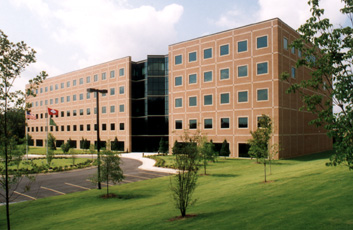ImplicationsYRC is making moves to close 11 terminals in the Northeast that belonged to the former USF Holland unit, now a part of the money-losing YRC Regional trucking operation. The closings include terminals in Harrisburg, Allentown, Bedford, DuBois, Wilkes-Barre and Philadelphia. The move comes after parent YRC Worldwide has lost more than $1.6 billion the last two years.
AnalysisIt's begun. The new "downsized" YRC Worldwide is under way.
Once nearly a $10 billion company with nearly a 30 percent market share in the $34 billion LTL market, YRC Worldwide has begun shuttering terminals, laying off workers and sharply curtailing the size of its money-losing YRC Regional unit.
This story details layoffs of 50 workers at the former USF Holland hub in Harrisburg, Pa. Another 72 persons will be laid off in Philadelphia at the former USF Holland terminal in that city.
The former USF Holland hubs are closing "to support ongoing efforts to improve service performance, reduce costs and maintain competitiveness," according to Keith Lovetro, president of YRC Regional Transportation.
Parent YRC Worldwide has lost in excess of $1.6 billion in the past two years. Whether it is profitable in the first quarter of 2009 is highly doubtful, and most major trucking companies are suffering from a sharp downturn in freight demand due to the recession.
One can reasonable expect that YRC's customers will now be served by its New Penn subsidiary, which it bought as part of the $1.1 billion purchase of Roadway Express in 2003. At the time, Roadway and New Penn were both profitable.
The USF Holland unit came with YRC's $1.2 billion purchase of USF Corp. in 2005 in the climax of YRC's buying binge. As a result of those purchases, which are suspect in retrospect, YRC is a highly leveraged company that is being forced to sell off and close assets to avoid being in violation of loan covenants.
The closings also are an opening for the likes of FedEx Freight, UPS Freight, New England Motor Freight and Estes Express to expand their business in the highly competitive Northeast LTL picture. You can also add Con-way Freight to that mix.
It's probably never been a better time to be a shipper of freight in the Northeast. If shippers cannot negotiate at least a 60 percent discount off list rates in this region now, they never will. A large customer such as Home Depot or Lowe's is probably worth a 70 percent-plus discount.
YRC probably doesn't have much choice but to close these underperforming and overlapping assets, given its precarious financial condition. Competitors are asking whether YRC will survive, and moves such as these only add fuel to the fire as the speculation about YRC continues in the market place.
 ABF Freight System, Inc., announces the appointment of William David Evans to vice president of industrial relations effective June 1, 2009. Currently, Mr. Evans serves as regional vice president of operations based in Kansas City, Mo.
ABF Freight System, Inc., announces the appointment of William David Evans to vice president of industrial relations effective June 1, 2009. Currently, Mr. Evans serves as regional vice president of operations based in Kansas City, Mo.